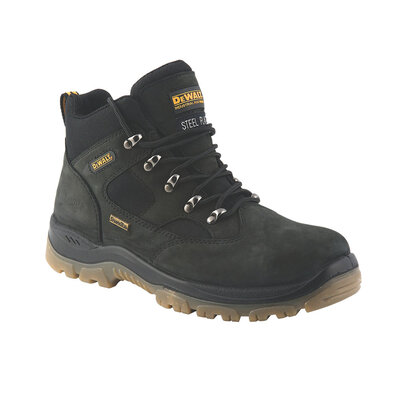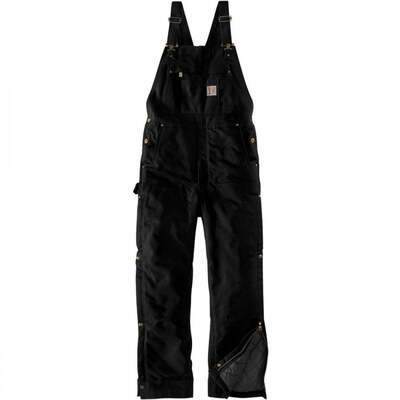FTC Disclosure: Workwear receives financial compensation when the affiliate link(s) on this page are clicked on and a purchase is made.
Granite workwear typically refers to a category of workwear and safety gear used in various industries, including construction, manufacturing, and outdoor professions. It is designed to provide workers with the necessary protection and functionality to perform their jobs safely and efficiently. Here is an overview of granite workwear:
- Safety Gear: Granite workwear often includes safety gear such as hard hats, safety helmets, and head protection. These items are essential for protecting workers from falling objects and head injuries in construction and industrial settings.
- Footwear: Granite workwear may feature safety footwear, including steel-toed boots or shoes. These protective shoes are designed to prevent foot injuries caused by heavy objects, sharp materials, or crushing accidents.
- High-Visibility Clothing: Many granite workwear items are designed with high-visibility materials, such as reflective strips and bright colors. This type of clothing is crucial for workers who need to be easily seen, especially in low-light conditions or areas with moving vehicles, such as road construction or traffic control.
- Safety Gloves: Gloves made from durable and cut-resistant materials are common in granite workwear. These gloves protect workers' hands from cuts, abrasions, chemical exposure, and other hazards.
- Protective Eyewear: Safety glasses and goggles are essential for protecting the eyes from debris, chemicals, and other potential hazards in various work environments.
- Hearing Protection: Granite workwear may include earplugs or earmuffs to protect workers from excessive noise levels in industrial settings, which can lead to hearing damage.
- Respiratory Protection: In environments with airborne contaminants or harmful dust particles, respiratory protection, such as dust masks or respirators, may be part of granite workwear to safeguard workers' respiratory health.
- Work Pants and Jackets: Durable work pants and jackets made from tough materials are often included in granite workwear. These items protect from abrasions, cuts, and exposure to harsh weather conditions.
- Customization: Many employers customize granite workwear with their company logos and branding to promote a professional image and easily identify their employees.
- Compliance with Regulations: Granite workwear items often need to meet specific industry regulations and safety standards, ensuring that workers are adequately protected and compliant with workplace safety requirements.
- Durability: Granite workwear is designed to be highly durable, as it needs to withstand the rigors of industrial and construction environments. The materials used are typically resistant to wear and tear.
- Comfort: While prioritizing safety, modern granite workwear is designed with comfort in mind, including features such as ergonomic designs, moisture-wicking fabrics, and breathable materials to ensure that workers can perform their duties comfortably.
- Specialized Gear: Some industries require specialized granite workwear. For example, firefighters wear flame-resistant gear, while workers in extreme cold conditions may have insulated workwear.
Also Read: Workwear Overview
In summary, granite workwear encompasses a range of clothing and gear designed to protect workers in various industries from workplace hazards. It plays a crucial role in ensuring the safety and well-being of employees while allowing them to perform their job tasks effectively. Employers often invest in high-quality granite workwear to prioritize the safety of their workforce and comply with safety regulations.
SHOP NOW! FOOTWEAR
Pros and Cons Granite Workwear
Granite workwear, like any category of workwear and safety gear, comes with its own set of advantages and disadvantages. These pros and cons should be considered in the context of specific job roles, industries, and workplace requirements. Here are some of the pros and cons of granite workwear:
Pros of Granite Workwear:
- Safety: The primary advantage of granite workwear is its ability to provide essential safety and protection for workers. It helps safeguard employees from various workplace hazards, including falling objects, chemical exposure, extreme temperatures, and more.
- Compliance: Granite workwear is often designed to meet industry-specific regulations and safety standards. Using compliant workwear helps businesses avoid legal issues and ensure the safety of their employees.
- Durability: Granite workwear is typically made from robust and durable materials, which can withstand the wear and tear of industrial and construction environments. This durability ensures a longer lifespan for workwear items, reducing the need for frequent replacements.
- Customization: Many employers allow for the customization of granite workwear with company logos and branding. Customization can promote a sense of identity and pride among workers and help with employee recognition.
- Visibility: High-visibility granite workwear, with features like reflective strips and bright colors, enhances worker visibility, especially in low-light conditions. This is crucial for jobs involving roadwork, construction, and traffic control.
- Protection: Granite workwear includes protective gear such as steel-toed boots, hard hats, gloves, and eyewear, which safeguard workers from physical injuries, burns, and chemical exposures.
- Comfort: Modern granite workwear is designed with comfort in mind. Ergonomic designs, moisture-wicking fabrics, and breathable materials aim to ensure that workers can perform their duties comfortably, even during long shifts.
Cons of Granite Workwear:
- Cost: High-quality granite workwear can be expensive, particularly when it needs to meet specific safety standards or regulations. For employees required to purchase their workwear, this cost can be a financial burden.
- Comfort Issues: While comfort is a priority in modern designs, some granite workwear items may still feel heavy, restrictive, or uncomfortable to wear for extended periods, leading to reduced job satisfaction.
- Limited Style Options: Granite workwear is generally designed for functionality and safety rather than fashion. Employees may find that their work attire lacks style options and personal expression.
- Maintenance: Cleaning and maintaining granite workwear, especially when it gets dirty or stained, can be challenging and time-consuming. Some workwear items may require specialized care.
- Environmental Concerns: The production of granite workwear, particularly when using certain materials or manufacturing processes, can have environmental impacts. This is an increasing concern as sustainability becomes more important in clothing production.
- Temperature Regulation: While protective, some granite workwear may not effectively regulate body temperature. This can lead to discomfort for workers in extreme weather conditions, either too hot or too cold.
In conclusion, granite workwear plays a crucial role in ensuring the safety and well-being of workers in various industries. However, it also comes with certain drawbacks, such as cost, comfort issues, and limited style options. Employers and employees should carefully consider these pros and cons when selecting and using granite workwear to strike a balance between safety and comfort in the workplace.



